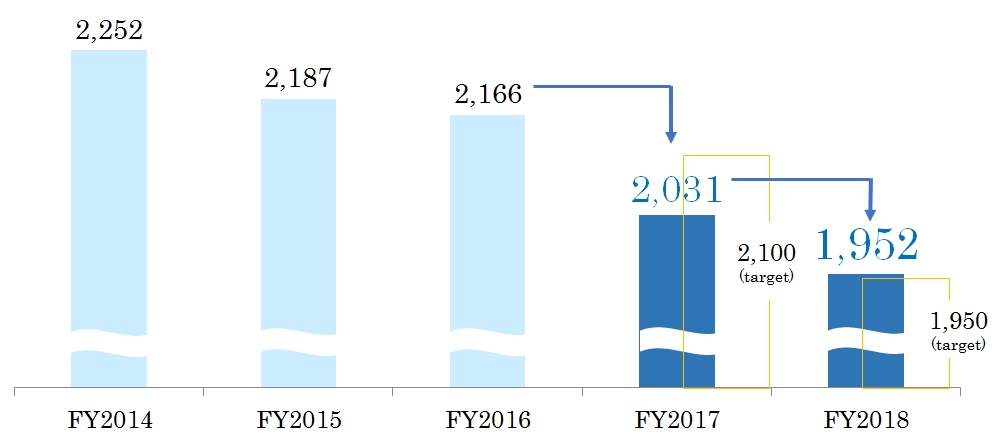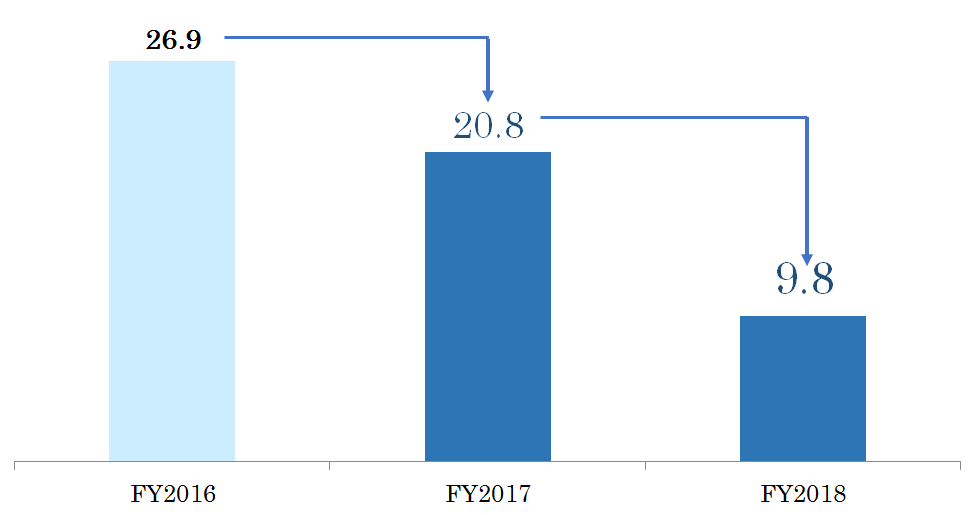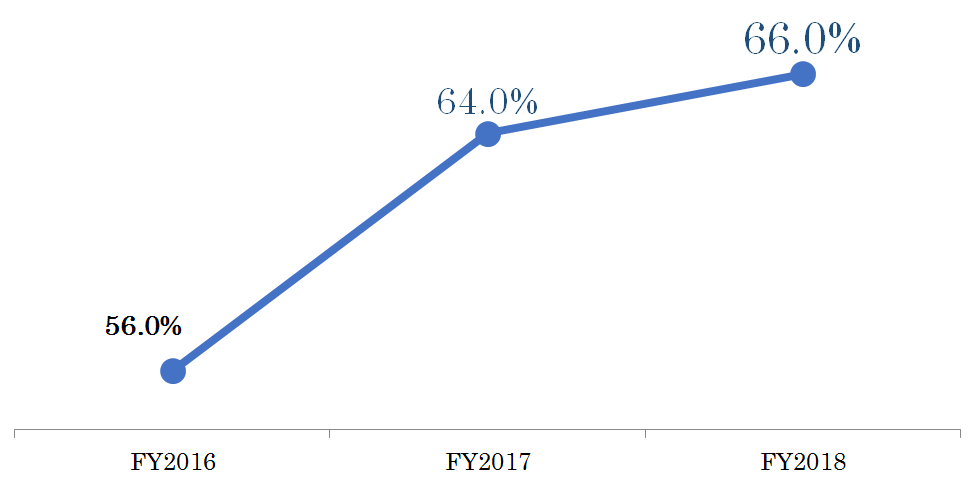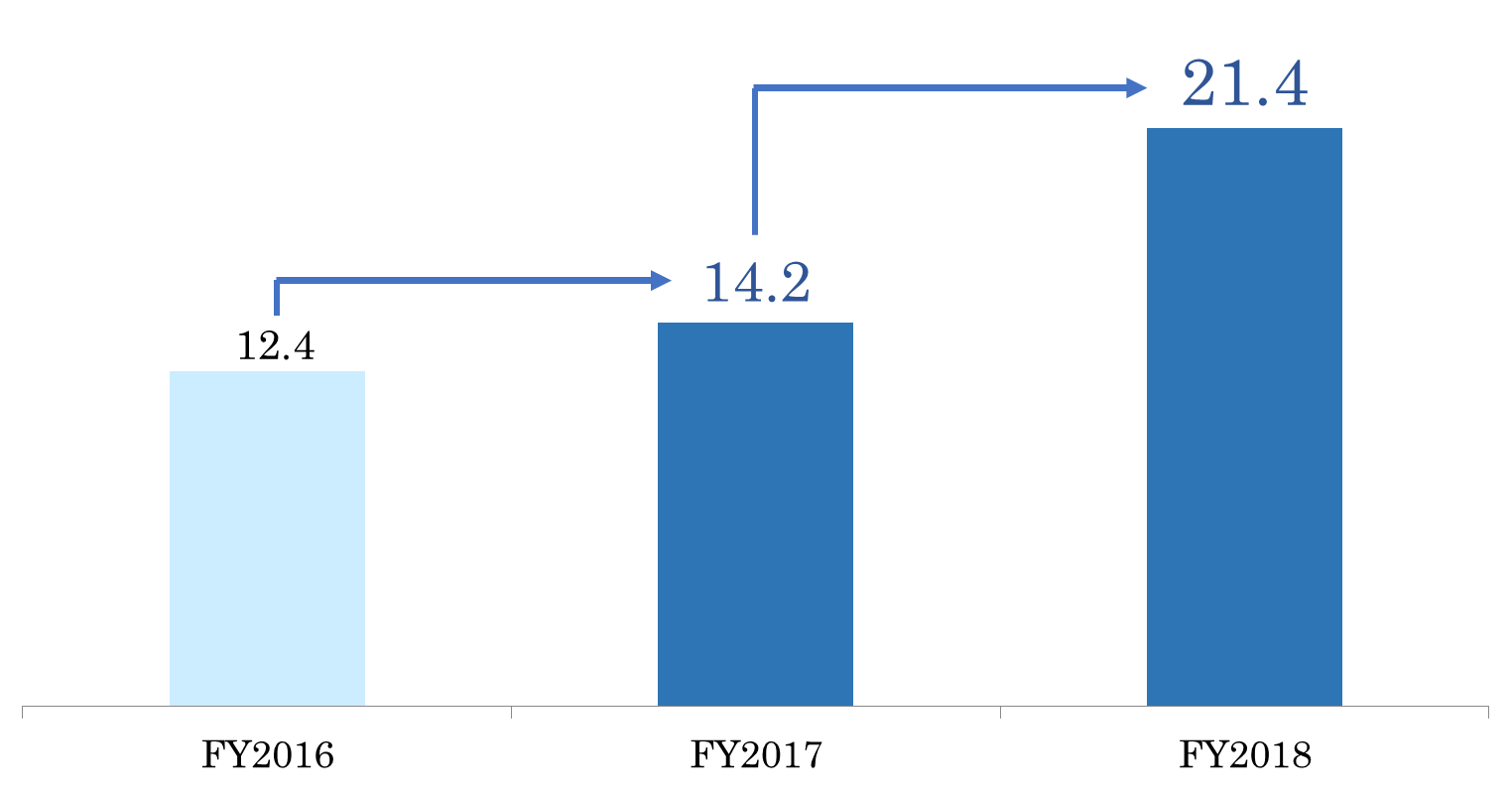-2018 Targets Almost Achieved; Comprehensive, Multifaceted Efforts Continues-
On July 27, 2017, we announced the Dentsu Japan Working Environment Reform Plan, an initiative developed jointly by management and employees, with inputs from external consultants. Since then, we have been making companywide efforts to achieve our goals of "Advancing the reforms and overhauling the infrastructure for future growth" to be completed by the end of 2018.
The objectives of the reforms are full compliance with labor regulations, elimination of excessive overtime, and better working environment. To this end, the Dentsu Working Environment Reforms Commission, headed by the president and CEO as director, was set up in November 2016 to lead the initiative. Subsequently, the Independent Advisory Committee for Labor Environment Reform Activities, consisting of outside experts, was established in February 2017 and has been monitoring the effectiveness of the reforms.
For the working environment reforms, we set employees' physical and mental health as the priority of Company management, simultaneously reducing working hours and improving the quality of business performance.
Main pillars of the overhaul of in-house environment and infrastructure include: thorough enforcement of time management and enhanced care for employees; "Work-Diet" through the thorough review of workflows and the improvement of business process; development of Smart Work Style through the enhancement of in-house infrastructure, including ICT; improvement of office environment; introduction of new work style through time value optimization; improvement of employee health management, and; helping employees pursue self-development. We have implemented more than 200 measures in the past two years, including "Input Holiday", "Rest Interval System", and "Vitality Note", all of which were introduced in 2018.
As a result of these activities, we have achieved the following:
Our first priority of zero violation of the maximum overtime work agreed under Article 36 of the Labor Standard Act. Although there were a few workers who exceeded overtime regulations for a limited period over the past two years of reforms, these incidents have all been resolved. Total annual work hours per employee continuously decreased from 2,166 (FY2016) to 2,031 (FY2017) and 1,952 (FY2018). In 2017 the figures were below the annual targets of 2,100, and in 2018 they were close to the target of 1,950. As a result, monthly average of hours in excess of statutory working hours per employee was reduced from 26.9 hours in 2016 to 9.8 hours in 2018.
<Total annual working hours per employee>

<Monthly average of hours in excess of statutory working hours per employee>

In addition, the usage rate of annual paid-holiday per employee* increased from 56.0% (FY2016) to 66.0% (FY2018), a 10 percentage point improvement in two years. The number of holidays taken per employee** also increased from 12.4 days (FY2016) to 21.4 days (FY2018).
<Usage rate of paid-holidays per employee (annual)>

<Number of Holidays taken per employee>

*Calculated by number of used paid-holidays/number of granted paid-holidays x 100
** Statutory paid-holidays plus non-statutory paid-holidays including Input Holidays
Evaluation by the Independent Advisory Committee on our past two years' efforts and the costs relating to the reforms are as follows:
<Evaluation by the Independent Advisory Committee>
Dentsu's working environment reforms have been very comprehensive through multi-faceted efforts, including the reduction of workload and outsourcing, business process reengineering, additional hires and optimal assignment of employees, human resource development, and enhanced support and care for employees. We can conclude the initiative was almost perfect in terms of its contents and structure for the following reasons. First of all, the entire company management, including the president, demonstrated strong leadership in the implementation of a series of reform programs. Secondly, a department exclusively driving the company-wide reform efforts was established. Lastly, the reforms have been monitored and reviewed through the objective views of the external experts in the Independent Advisory Committee to avoid complacent internal judgment and maintain objectivity.
With a few tangible results in the past two years in some measures, including strict compliance to labor laws and regulations and the reduction of workload, we need to remind the Company management and employees that the reform is still progressing toward the goal. We ask everyone in Dentsu, including domestic group companies, to stick to your determination to carry through with the reforms.
Changes in employee awareness also show that the reforms are making good progress. According to a research, more than 80% of employees responded they want to change their work styles or have started to review or changed their work styles, and almost two-thirds agreed that Dentsu is heading in the right direction through the reforms.
To restore damaged social credibility, Dentsu must carry on with the past two years' reform efforts, show more results, and share them with the society in an open and timely fashion.
<Costs relating to the reforms>
For the "Advancement of the reforms and overhaul of infrastructure for future growth", we spent 7.0 billion yen in FY2017 and 11.3 billion yen in FY2018, a total of 18.3 billion yen. The costs include 3.5 billion yen for staff costs including additional hires (1.3 billion yen in FY2017 and 2.2 billion yen in FY2018, 350 additional hires in two years), 11.6 billion yen for business process engineering, including automation and outsourcing, building of new business system, and full enforcement of labor management (4.0 billion yen in FY2017 and 7.6 billion yen in FY2018), and 3.2 billion yen for the improvement of office environment (1.7 billion yen in FY2017 and 1.5 billion yen in FY2018).
We will further drive our multifaceted and comprehensive reforms to achieve the reduction of workload and the improvement of output simultaneously, while closely monitoring the social impact of laws and regulations related to work-style reforms that will come into effect.
#####
